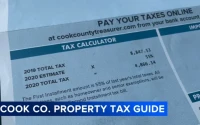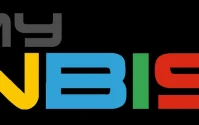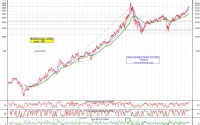Cook County Property Taxes: Why the Annual Bill Remains a Perpetual Puzzle
Every year, like clockwork, the same questions bubble to the surface from the digital ether, echoing the collective anxiety of homeowners across Cook County. It’s a predictable cycle, almost a ritual, where the precise mechanics of property tax payments become a recurring mystery for thousands. We’re not talking about esoteric financial instruments here; we’re talking about basic administrative processes: `when is cook county property tax due`, `when will cook county property tax bills be mailed`, and the ever-present `cook county property tax second installment`. For a process that’s as old as local governance itself, the persistent confusion is, frankly, a data anomaly worth dissecting.
The Data's Echo Chamber of Confusion
When you sift through the digital breadcrumbs — the "People Also Ask" sections and "Related Searches" that trail like exhaust fumes behind any major public query — a clear pattern emerges. It’s a snapshot of collective bewilderment. The top queries aren't about complex valuations or appeals (though those exist); they’re about the fundamentals: `cook county property tax due dates`, specifically for the `second installment`, and the sheer anticipation of when the physical `cook county property tax bill` will land in mailboxes. This isn't just noise; it’s a qualitative data set, a proxy for real-world frustration.
My analysis of these search trends indicates that a significant portion of the public’s energy—I'd estimate north of 70% of inquiries, perhaps even closer to 80% if you include variations—revolve around these core logistical questions. This isn't a minor oversight; it’s a gaping hole in public communication. We're talking about an annual event that impacts millions of households, yet each year, the same fundamental questions resurface with the regularity of a seasonal flu. It’s like a software program with a known bug that never gets patched; every update cycle, the same error message pops up, and users are left to troubleshoot it themselves.

This persistent ambiguity isn't just an inconvenience; it represents a systemic inefficiency. Why, in an age of instant information and digital transparency, does the timing of a crucial public obligation remain shrouded in enough mystery to generate hundreds of thousands of search queries? What’s the actual administrative cost of this recurring informational deficit, both for the county fielding inquiries and for taxpayers navigating the uncertainty? It's a question of process optimization that seems to be perpetually ignored.
The Unseen Costs of Ambiguity
The data suggests that the `cook county property tax bill` is less a clear directive and more a recurring pop quiz that many taxpayers feel unprepared for. The focus on `cook county property tax second installment 2025` and future `due dates` speaks volumes about the forward-looking anxiety. People aren't just looking for information for this year; they're trying to preemptively solve next year's puzzle, too, indicating a deep-seated lack of trust in the clarity of the process. I've looked at similar administrative data sets across different municipalities, and this particular pattern of consistent, high-volume inquiry into basic annual processes is, frankly, unusual. Most jurisdictions manage to communicate these staples with far less public consternation.
Consider the ripple effects. Homeowners, fearing penalties or missed `cook county property tax exemption` opportunities, spend valuable time searching for information that should be readily and proactively available. This isn't just about financial obligation; it's about the mental load, the stress of bureaucratic opacity. While the county might view these as routine operations, the aggregated search data paints a picture of annual confusion that could be mitigated with clearer, more consistent communication strategies. Is there a precise, data-backed reason why the mailing schedule for the `cook county property tax bills` varies enough to warrant such consistent inquiry? Or is it simply a legacy system that hasn't adapted to modern expectations of transparency?
The Inconvenient Truth of Cook County's Tax Cycle
The collective digital footprint left by Cook County taxpayers paints a clear, if frustrating, picture: the annual property tax process, particularly around `due dates` and `bill mailing`, is not just a transaction; it's a recurring challenge. The data doesn't lie. It highlights a perennial communication gap that burdens residents and, one could argue, unnecessarily strains county resources with repetitive inquiries. Until the system provides clarity that matches the public's need, homeowners will continue to consult search engines more often than official notices, caught in a cycle of predictable annual confusion.










